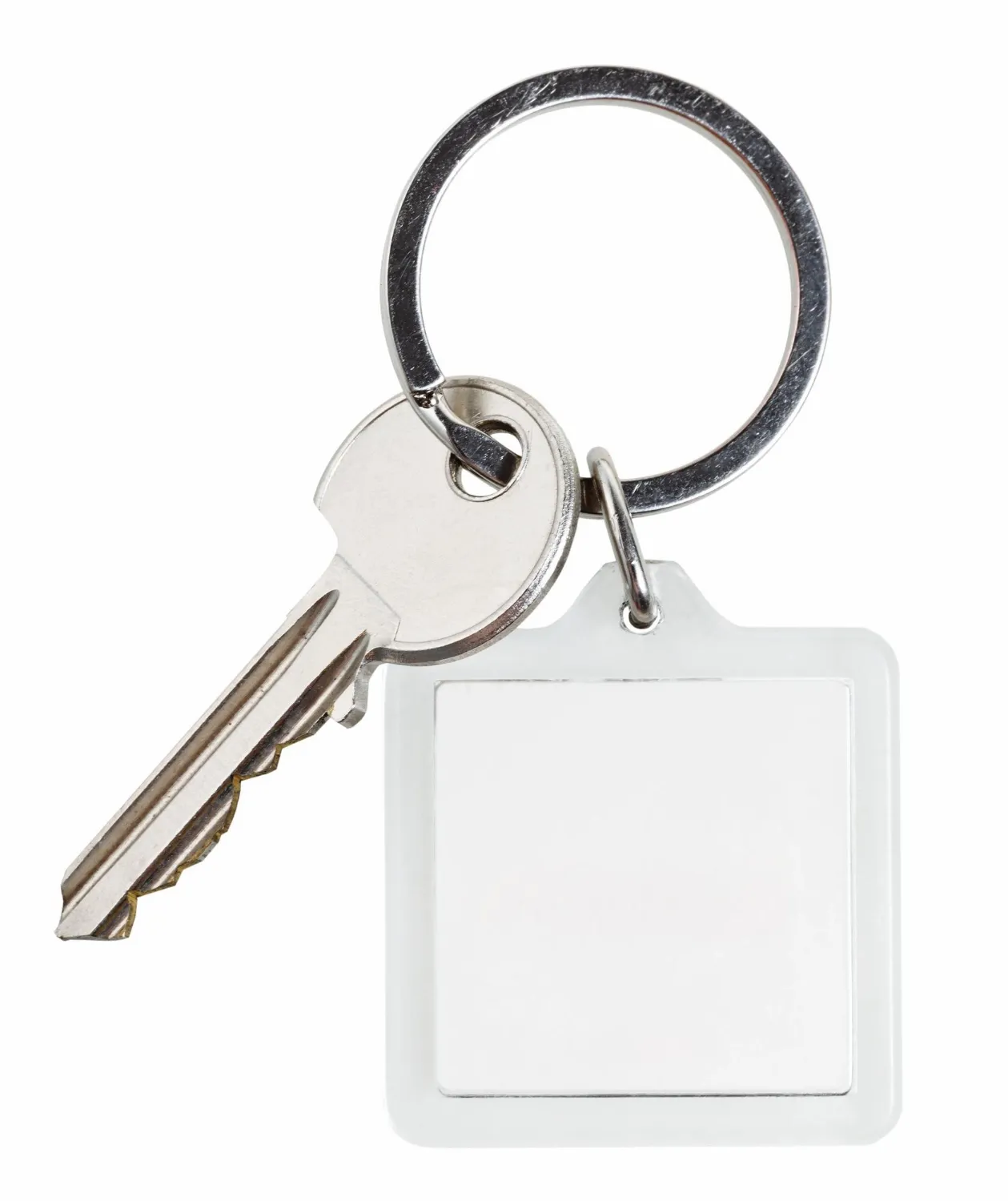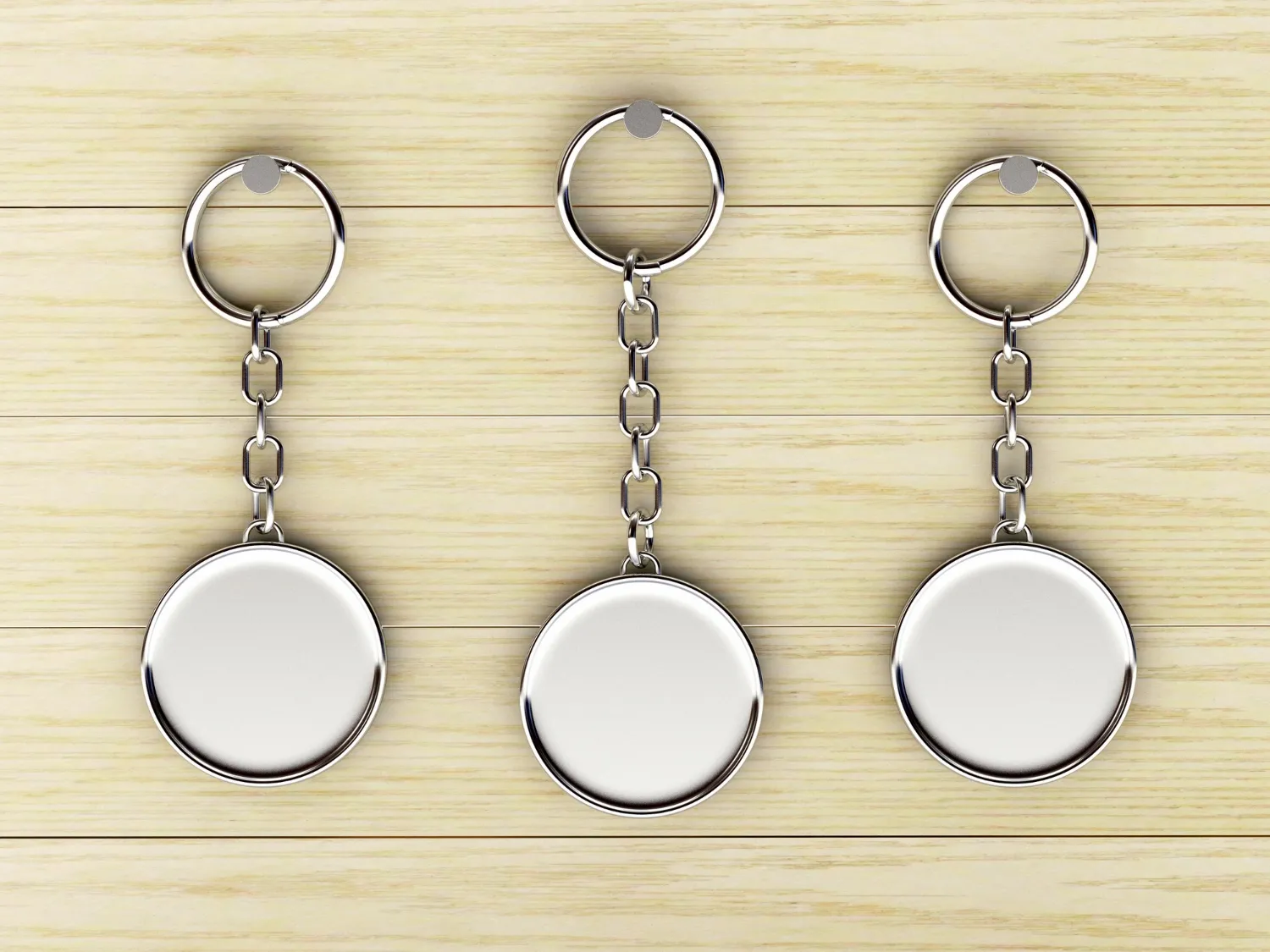How to Make a Keychain with Beads
Most people have seen necklaces and bracelets that feature beads. Those are simple to make – all you need is a little bit of string, some beads, and the ability to tie a knot. But did you know that it’s also possible to make keychains using the same beaded technique as you’d use for these other items of jewelry?
The process is a touch more involved, but still relatively simple. So, read on if you’re feeling crafty and want to know how to make beaded keychains at home.

Everything You Need to Make Beaded Keychains
Before digging into how to make beaded keychains, you need to gather the materials you’ll use to follow the below steps:
- A piece of string
- A key ring
- A pair of scissors
- Some beads to use on the keychain
- Thin metal wire (optional)
- Crimp bead and pliers (optional)
The beads themselves are quite interesting because there are several variations from which you can choose, the most popular being gumball, seed, and Perler beads.
Gumballs, also known as bubblegum beads, are the most easily accessible, as well as being the simplest to use. They’re usually spherical beads with a hole poked through the center through which you can insert strong. They’re usually made out of plastic and can come in various colors and designs.
Seed beads are a little more complicated because there are a few variations within this category:
- Miyuki – Usually made from glass, Miyuki beads are precision-cut and fairly expensive. They’re also extremely small, though they still feature large threading holes for your string.
- Toho – Though very similar to Miyuki beads in many ways, Toho beads tend to focus on bugles, which are long lengths of glass cane through which you can slot your string. You’ll find more shape-based variants of these canes with Toho beads – triangular, hexagonal, and square included – than you will with Miyuki.
- Czech – Unusual shapes and eye-catching designs are the domains of Czech beads, which forgo Japanese simplicity in favor of a little more razzle-dazzle.
Finally, Perler beads are interesting because they’re meltable. Also known as Hama beads in Japan, these beads are usually placed on a special pegboard so they form an image, with the owner then using wax paper and an iron to melt the beads into a solid piece. That may make you wonder how to make beaded keychains using Perler beads. The answer is simple – use these beads if you’d like to create one solid shape that runs down the string or is attached separately.
How to Make Beaded Keychains - The Steps
With your beads chosen, you’re ready to start making your keychain by following these simple steps.
Step 1 – Choose Your String
While almost any type of string will do for your keyring, there are a couple of things to consider. First – how big are the holes in your beads? Some types of string might be out of the question if the string is too thick to fit through the holes.

There are also some material choices to keep in mind. While string is a great all-purpose choice for beaded keychains, it’s not your only choice. You might prefer wire – especially if your beads have smaller holes – or even use leather cord if you’d like a little extra durability built into the string.
Finally, this process requires you to double up when slotting your string through the beads. Keep that in mind and only choose a string that’s half (or less) of the circumference of your bead holes.
Step 2 – Cut Your String
The only thing you need to think about here is how long you want your string to be. For instance, it’ll need to be a touch bigger than your wrist’s circumference if you intend to wear it on your arm. Alternatively, you might choose a shorter piece if you’re going to hang your keys from a wallet or belt strap.
Step 3 – Attach Your String to Your Keyring
With your string cut, fold it in half before sliding both of the string’s ends through the keyring’s center. Pull the string through until the keyring reaches the center, which should leave you with a large loop that sticks out from the ring.
Keeping hold of the two ends you initially slotted through the keyring, push those two ends through the loop you’ve formed and pull – your string will tighten around your keyring thanks to the knot you’ve just created.
Step 4 – Thread Your Beads
Here’s the tricky part – thread both ends of your string through a bead. The strands may try to split up while you do this, so it may take a couple of tries to thread both through the hole. But when you manage it, pinch the strands together and push the bead down to the keychain.
You can also make a “needle” from a piece of wire by twisting a solid piece so the ends meet at a point. Thread the string through the eye of the metal needle and run the ends a bit so you can keep the string inside the needle. All you have to do now is push the needle through the bead and then pull the bead across the string.

Repeat for all of your beads to complete the design.
Step 5 – Finishing Touch
When you finish the design, tie a double knot at the end of your string. Trim the excess string with your scissors, and you have your beaded keychain.
Alternatively, you can use a crimp bead (usually made of metal) as a finishing piece. Slide the bead down the wire or string, then flatten it with the pliers. This should seal the bead around the wire so it can’t come undone. You can also use a crimp bead cover to make it more stylish.
Create Keychains the Easy Way with Custom Keychain Now
Now that you know how to make beaded keychains, you can see that the process is fairly simple. In fact, the most challenging aspect lies in picking the right beads for the job, which is as much about your personal preference as it is about the beads themselves.
There’s also a variation of the keychain that uses a lobster clasp instead of a keyring. This one requires a jump ring and a metal crimp bead to connect the beaded string to the clasp.
Unfortunately, this technique takes a little bit of time, making it difficult to scale. If you need large volumes of custom keychains made in a short period, you need to call in the professionals – Custom Keychain Now. Our simple online ordering system allows you to create keychains using any design you wish, with keychains available from metal, acrylic, PVC, and more materials. Complete your order today and we’ll have your keychains in production and ready to ship to your door in a handful of days.